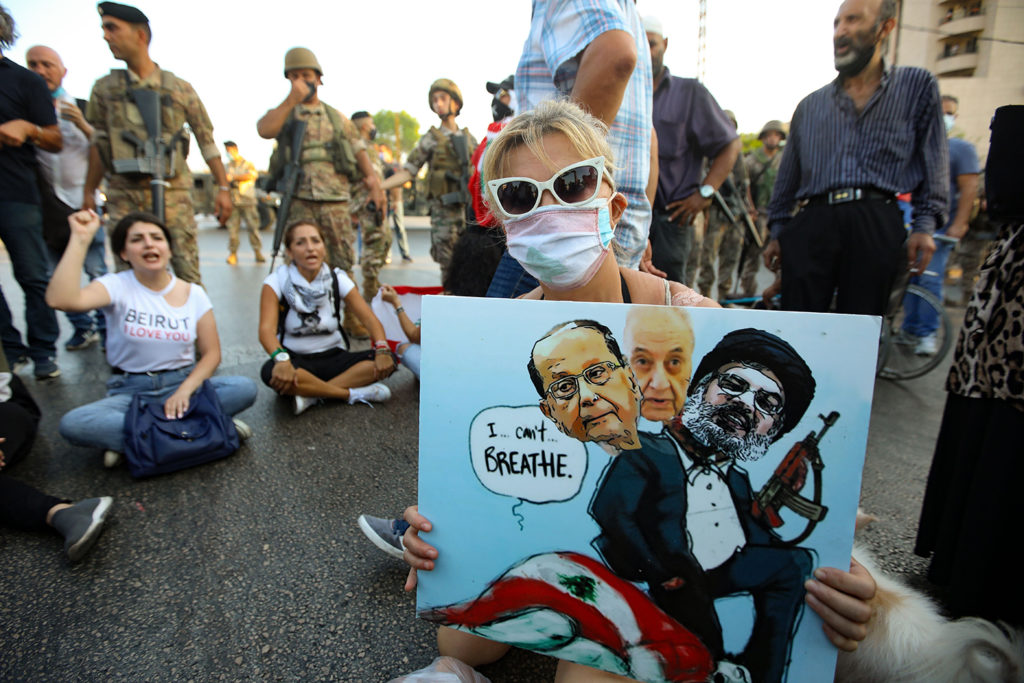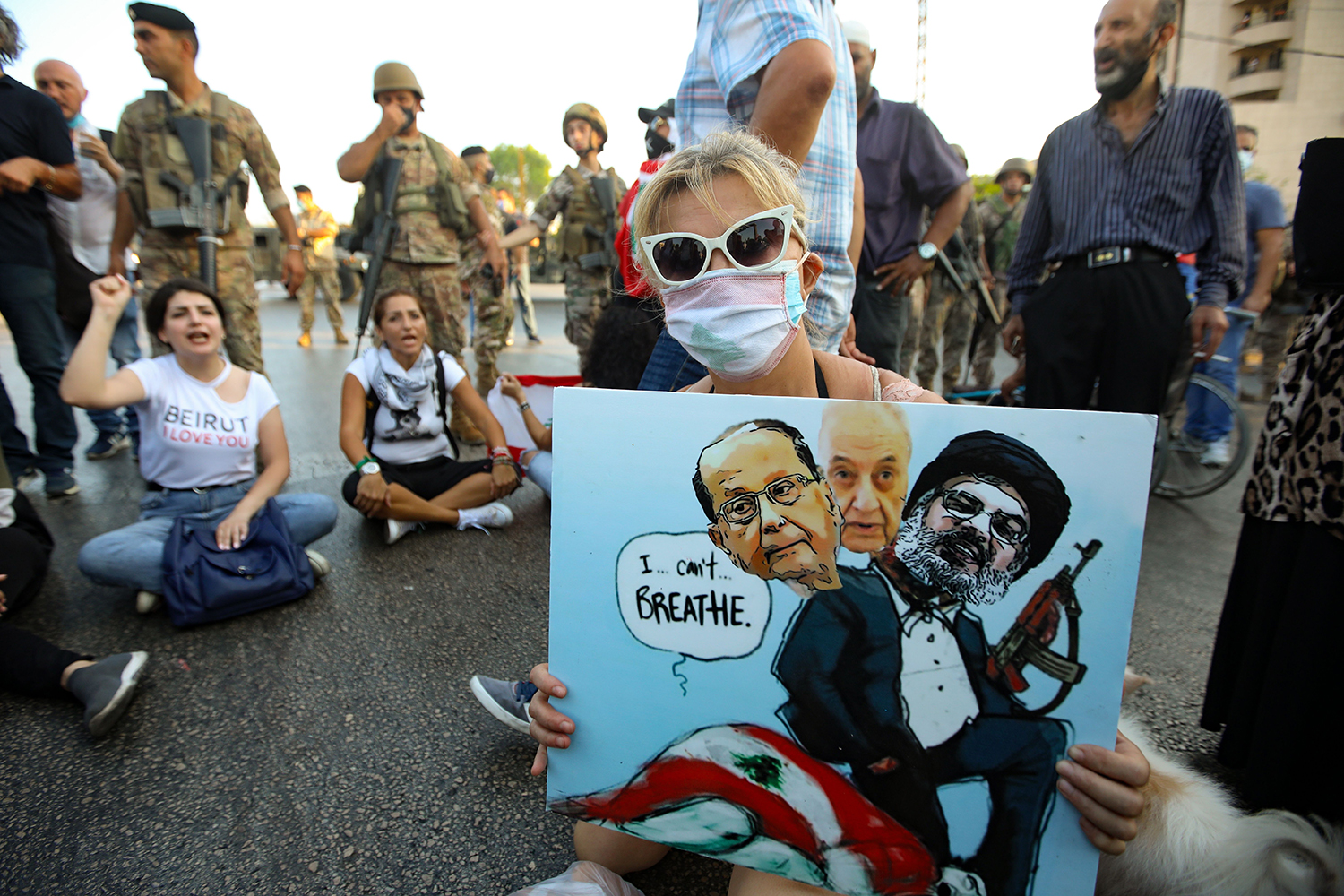BY DAVID ROMANO JUMANA AL-TAMIMI

Lebanon appears to be on the brink as the country descends into a more dangerous state than at any time since the 1975-90 civil war. Even before the devastating explosion in Beirut on Aug. 4, popular disgust with Lebanon’s government and sectarian tensions were nearing critical levels.
In large part due to Hezbollah’s prominence in the Lebanese government, foreign donors failed to step in with rescue offers amid the country’s debt and financial storm. The crisis has been compounded by the resignation on Saturday of Mustapha Adib, the prime minister-designate, over his failure to form a government of technocrats.
Small wonder that some experts are comparing the current situation to governance breakdown elsewhere in the world as they ponder the question: What next for Lebanon?
Until recently, the country most frequently cited in comparison was Venezuela, once the richest state in Latin America, but now a byword for political, economic and humanitarian collapse.
However, some political observers now believe that Lebanon may well be going the way of Somalia, which after 1991 became the archetypal failed state, carved up by warring factions, and with Al-Shabab militants waging a war against the government that has led to a humanitarian and security crisis in the Horn of Africa nation.
Leila Nicolas, international affairs professor at Beirut’s Lebanese University, said comparing present-day Lebanon to other countries may be “simplifying” things. “The Middle East region is not like any region of Africa or South America,” she told Arab News.
Certainly, since the end of the civil war in 1990, outbreaks of violence in Lebanon have been episodic. However, there is increasing evidence of other characteristics of a fragile or failing state, such as weak governance, limited administrative capacity, chronic humanitarian problems and persistent social tensions.
Since Hezbollah unleashed its armed militia on political rivals in Beirut in 2008, other parties — none of which kept their militias in the 1990 peace deal that ended the country’s civil war — have been unable to challenge the group’s hold on the government.
Hezbollah’s increasing stranglehold over Beirut in turn alienated investors and donors from abroad. Its presence on US terrorism lists and links to Iran attracted sanctions from Washington, which spilled over to harm the wider Lebanese economy.
The Beirut port blast, which damaged a large part of the city and killed and wounded hundreds, was the result of government ineptitude and corruption, adding to already high levels of popular discontent with Lebanon’s rulers.
Khaled Abou Zahr, CEO of Eurabia, a media and tech company, said there are many similarities between the Lebanese and Venezuelan models.
#WATCH: Khaled Abou Zahr, CEO of Eurabia and Arab News columnist, dissects the latest political developments in #Lebanon. Read more here https://t.co/65vttS0K2e pic.twitter.com/HyPMUPL7xa
— Arab News (@arabnews) September 27, 2020
Arab News


Leave a Reply
You must be logged in to post a comment.